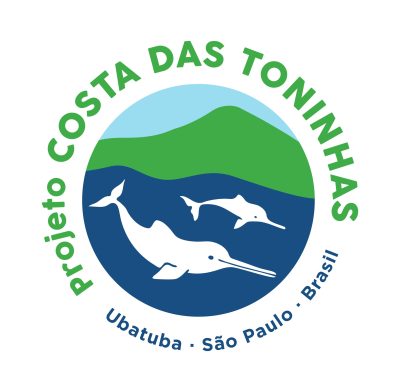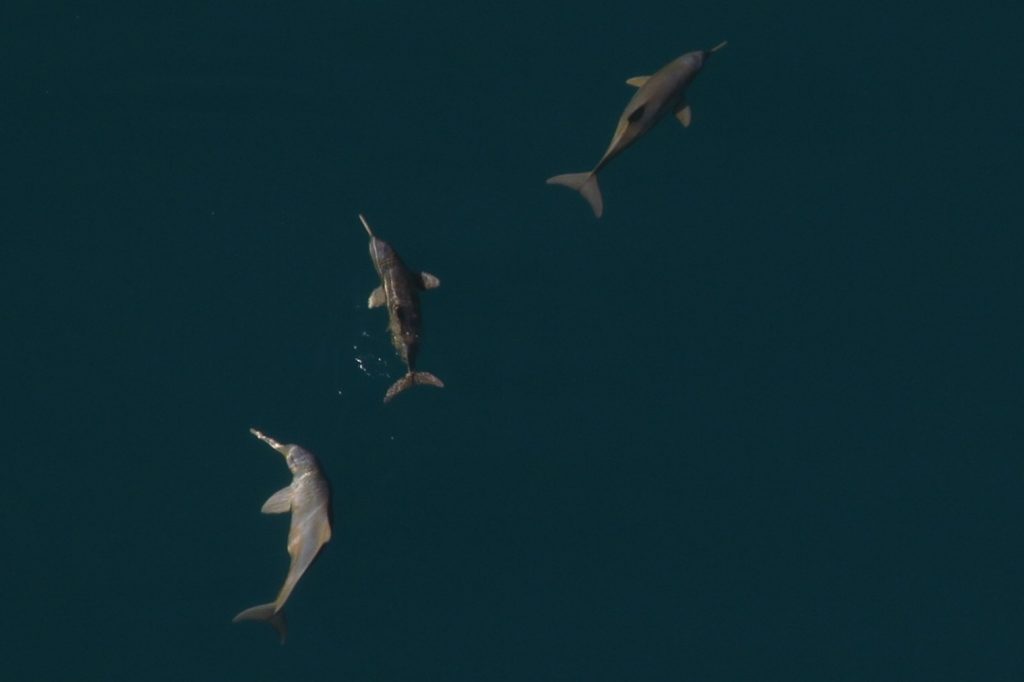The Costa das Toninhas Project aims to study the Franciscana's ecology and behavior, and evaluate its conservation problems on the north coast of São Paulo. Since 2016, several aerial surveys have been carried out in Ubatuba and Caraguatatuba to understand how the most threatened dolphin in South America is distributed, and what is the size of its population in this region.
Researchers also use drones to study never-before-evaluated aspects of the species' behavior and ecology in the wild. Due to its clear waters and regions of franciscana concentration close to the coast, Ubatuba is an open-air laboratory for this species rarely seen. Little-known behaviors have been recorded for the first time, such as socialization, surface feeding, reproduction and probable suckling.
The Project is also studying the structure of the groups and the franciscana´s diving/surface behavior. The preliminary results collected from photos strengthen the hypothesis that the franciscana forms families, with the calf remaining with the mother even after the birth of his sibling. Another interesting finding is the record of care of the calf by animals other than the mother.
Project researchers have many open questions that are being studied. For example: Are there preferential areas of occurrence and critical areas that must be preserved? How does the body condition of animals vary between individuals and throughout the year? Does the structure of the groups vary over the year or is it stable? How is the calf's independence process with the mother? These and many other topics about the franciscana should be studied in the coming years for a better general understanding of this endangered but also fascinating species.






